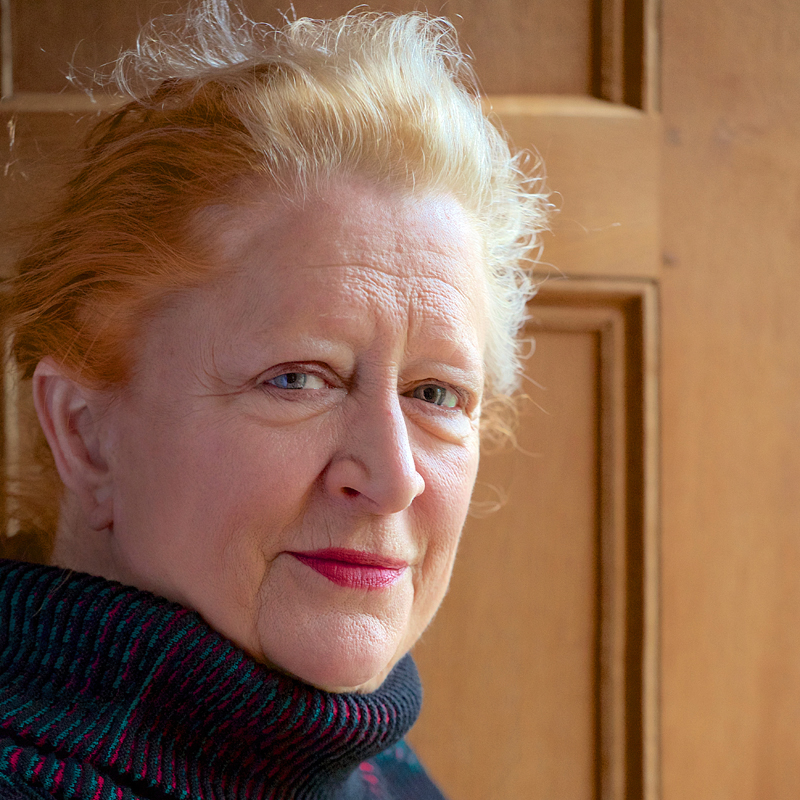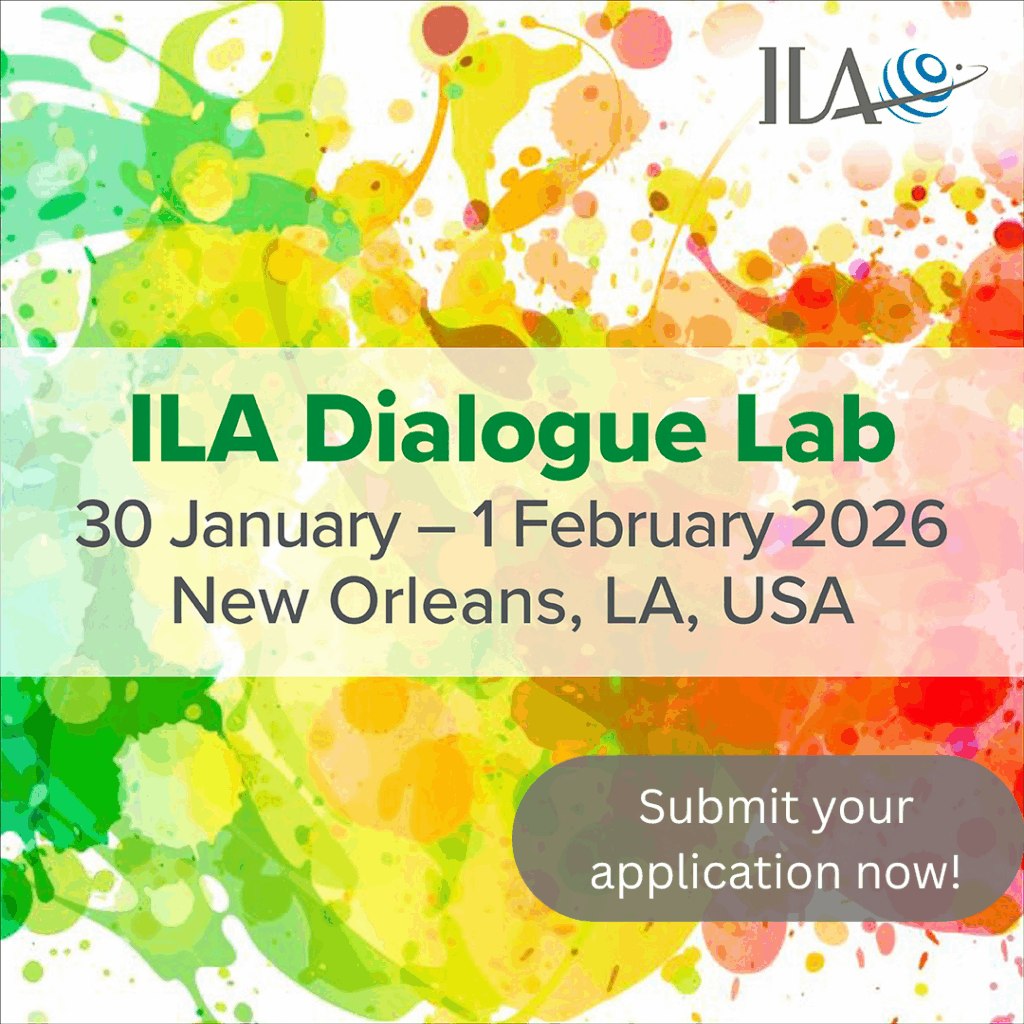
by Margaret Heffernan
15 September 2020
Share this article:
Listen to ILA’s “10 Minutes On Leadership” podcast with Margaret on Spotify! Margaret will be speaking on her new book at #ILA2020Global.
The one thing we know about the future is that we do not know the future. Experts in forecasting now say that the window for accurate prediction is no more than 400 days. And that only applies if you are open-minded, rigorous in reviewing a broad range of information sources, apply probabilities to your conclusions, and routinely adjust these in the light of new information. If that isn’t you, the horizon is more like 150 days. Kiss goodbye to your five-year plan.
So, it’s never been more critical for organizations to stay fiercely attuned to early warning signals, and to be able to respond fast when clarity emerges. Which means that leadership cannot reside just at the top. A highly networked organization, in which information and insight travel fast and without hindrance, is the only coherent response to a world whose business conditions change overnight. The kind of business that sees early and responds fast will appreciate that everything depends on people.
Intimations of this were felt early in the pandemic. Around the world, most leaders at every level instinctively knew that their priority had to be to look after their people, whether working on site, from home—or furloughed. To their amazement, they found that caring about people made productivity go up, not down. By necessity, much work moved to smaller, ad hoc, teams. Leaders had no choice but to trust their people to know what to do and keep work moving. What they discovered was that, absent the heavy hand of scientific management, workers were creative, committed improvisers.
Maintaining that level creativity and motivation is now the prime leadership challenge. But devolved, often improvised, working requires that people are well informed about what is needed and why. Building on ten years of her work on trust, new research from Professor Veronica Hope-Hailey discovered that, while trust in leaders during the pandemic remained high, workers wanted to be trusted with better information. People are eager to make strong, serious contributions but for that, they need current, up-to-date knowledge. In a future where creative responsiveness can spell the difference between survival and failure, the aim must now be to enable deeper participation on the part of the entire workforce.
We saw the beginning of this trend before the pandemic, with more organizations finding new ways to gain greater insight from the people they hire. At the Bank of England, productivity gains were driven not by strategy defined at the top, but by a wide range of experiments designed by the workforce. To capture cross-generational insight, Capita now has a young employee on its board. Acknowledging the failure of senior management to understand its daily, operational problems, the Post Office recently put a serving postmaster on its board. Other firms are creating shadow boards, designed to reflect current demographics and diversity, and charged with honest feedback on strategic thinking. The proliferation of open strategy and open innovation platforms speaks to a growing awareness that organizations can only be as alert and responsive as employee participation is allowed to be.
A new social contract between leaders and followers will require that both are taken seriously as producers of public good.
This trend has become even more important, now that we have been made to recognize how far our lives depend on some of the least visible, and least rewarded, in the workforce. Where a great deal of leadership has traditionally been focused on markets and consumers, the COVID-19 crisis re-directed attention to the producers of goods and services. That this work has dignity and meaning came as a revelation to many. For leaders, it should force a re-definition of where the value of work comes from. There is no point asking people to go back to work for the good of the economy, if the economy does not work for them. As Michael Sandel argues, leaders must now consider the common good to which everyone in their organizations contribute.
To date, this has been discussed in terms of a firm’s purpose: the public understanding of why and how the firm makes itself relevant and useful to the world. But purpose is a much-traduced word. Bland purpose statements (“to help Britain prosper”) convince no one of anything meaningful. Acknowledging that organizations both give to and take from society requires that leaders do likewise—something wealthy firms discovered when castigated for taking government furlough payments. The bromidic statements following Black Lives Matter protests were frequently crafted without any participation of the marginalized groups concerned. Hiring senior women does nothing for gender diversity if they’re sidelined and excluded. The decades and billions of dollars spent on diversity programs have produced so little change that it’s obvious almost no one believed that equality of opportunity was a serious business issue. That signatories to the American Business Roundtable’s redefinition of the purpose of business have been cited for more environmental and labor-related infractions than other companies only amplifies incredulity. The experience of the COVID-19 crisis, coupled with radical transparency, now makes it critical for leaders to consider deeply the health and reciprocity of their relationship to the society that supports them. If purpose, however expressed, isn’t real, then it can have no galvanizing impact on the energy and creativity on the workforce. Whenever we emerge from the Covid-19 crisis, we will run into an economic crisis and we are already in a climate crisis—which means that we need better thinking, together with higher levels of commitment, trust and energy, than ever before.
A new social contract between leaders and followers will require that both are taken seriously as producers of public good. In a complex world where we cannot see the future clearly until it is upon us, listening to all voices, entrusting each contributor with knowledge and responsibility, is the only way to create organizations with the creativity and legitimacy they need, and we need, to remain relevant. That means greater participation in decision-making. It means greater security in jobs that treat people as people, not machines. It means the end of the gig economy which allows to individuals neither participation nor safety.
A century of so-called scientific management persuaded generations of leaders to believe that their job was to manage resources with maximum efficiency in order to drive consumption and serve markets. Now, that appears not just irrelevant; it seems to be the very source of our ills. The leaders of the future won’t see their job as discerning the future, but as listening to the voices who can imagine how to build it.

Margaret Heffernan is the author of the best-selling UNCHARTED: How to Map the Future Together (2020, Simon & Schuster), nominated for a Financial Times Best Business Book award. She is a Professor of Practice at the University of Bath, Lead Faculty for the Forward Institute’s Responsible Leadership Programme and, through Merryck & Co., mentors CEOs and senior executives of major global organizations. The author of six books, Margaret’s third book, Willful Blindness: Why We Ignore the Obvious at our Peril was named one of the most important business books of the decade by the Financial Times. In 2015, she was awarded the Transmission Prize for A Bigger Prize: Why Competition isn’t Everything and How We Do Better, described as “meticulously researched…engagingly written…universally relevant and hard to fault.” Her TED talks have been seen by over twelve million people and in 2015 TED published Beyond Measure: The Big Impact of Small Changes. Learn more: www.mheffernan.com.

